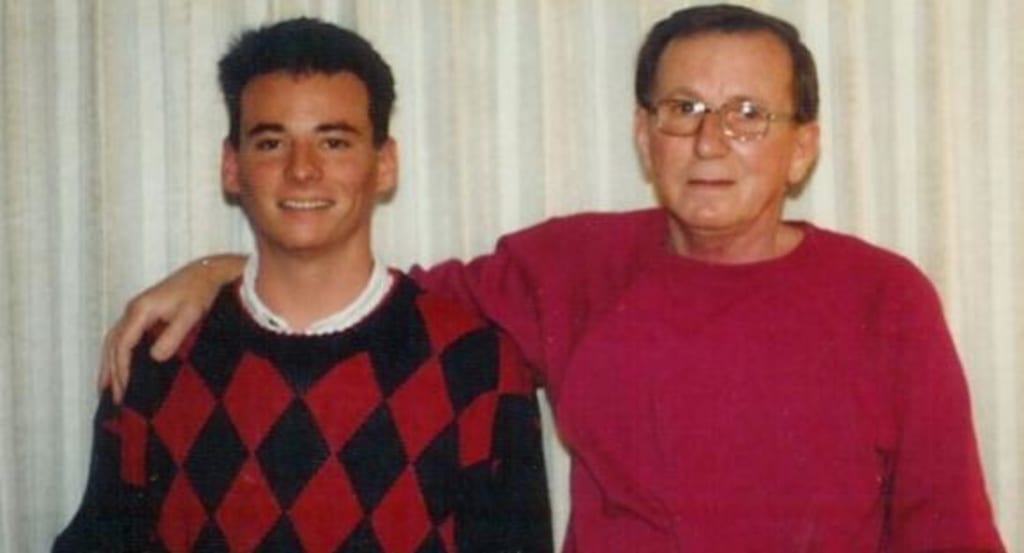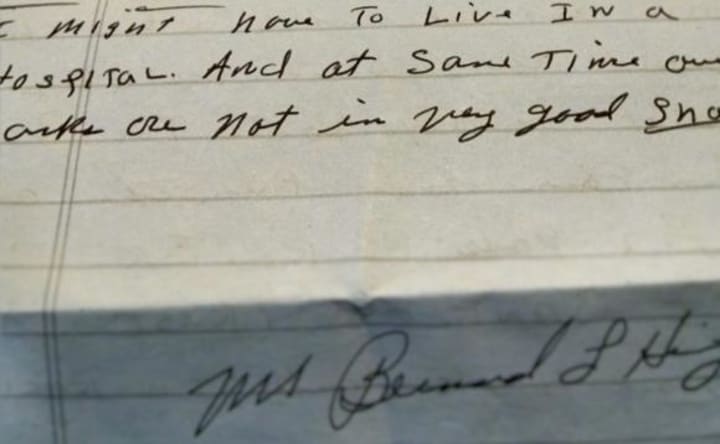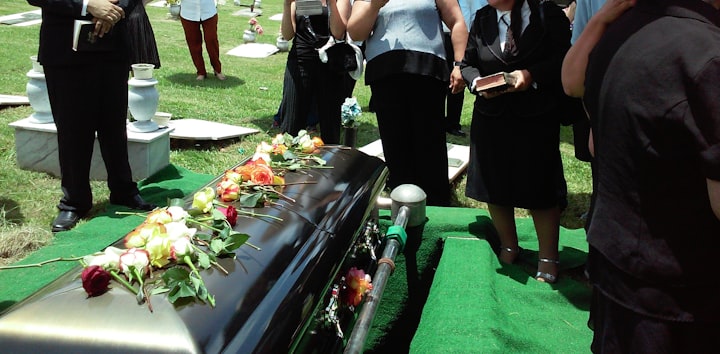Why my dad kept his deadly brain disease secret
Unlike my mother, he did not want to spend life planning death

Editor's note: An earlier version of this article appeared on News Break.
My dad spent his entire adult life telling people he was sick. Nobody believed him.
Dad had trouble getting around. He generally spent much of his life a miserable person.
He always said he had a rare disease, but no one believed him. He never was able to put a name on the condition.
He called it “Kaplan’s Disease” after our family doctor, Robert Kaplan.
But dad did have an official diagnosis. We found out when we went through dad’s safe deposit box when he died.
He knew he was going to spend the end of his life in long-term care. And he planned for it.
Spending life planning a death
Dad knows I’m a worry wart. I spent much of my life when mom was living fearing she would be dead soon.
Doctors gave her a cancer diagnosis when I was 9. They gave my mother six months to live when I was 14.
She lived until I was 24. But the diagnosis ruined our relationship. I think I prepared for her death from the day she had her mastectomy when I was 9.
It sounded like a terrifying surgery for someone to go through. How much longer can you live after that, I thought as a nine-year-old
Most of my life with mom was spent crying. Crying when we would fight. Crying when doctors told her the cancer returned. Crying when she would fight with my dad.
Dad didn’t want to cry about his diagnosis. For sure, he wanted sympathy. Yet he knew just how bad his disease would get, and he never told anyone.
The shocking note dad left behind
“I might have to live in a hospital,” dad wrote in a note inside a safe deposit box containing thousands of dollars in cash. “And at same time banks are not in good shape.”

The date was 1991.
When I read that, I realized how much my dad cared about my brother and me. Not just because he left us a lot of money, but because he did not want us worrying about his death while we were alive. That’s what we did with my mother.
It became death watch when her cancer would return. It’s hard to celebrate life when you’re always waiting to die.
My dad spent a great deal of his life a raging alcoholic. But in his final years, he quit. Much like myself.
Many people agreed my dad was sick. But his disease, they said, was alcoholism.
Alcohol causes frontal lobe shrinkage
My dad died a textbook death from behavioral-variant frontotemporal degeneration, also called Pick’s Disease. This is a condition where the frontal lobes of the brain begin to shrink. This affects executive function (the ability to make decisions) and behavior.
But heavy drinking also can cause the frontal lobes to shrink. A 2001 study in British Medical Journal concluded that moderate drinkers don’t have frontal lobe shrinkage, but heavy drinkers do.
A study appearing in JAMA Psychiatry shows how white matter overtakes the brain of teens who drink. The white matter hinders emotional and behavioral development, especially in younger children.
“The alcohol-associated disruption was greater in younger than older adolescents and was most pronounced in the genu and body of the corpus callosum, regions known to continue developing throughout adolescence,” the researchers concluded.
Sometimes frontotemporal degeneration is mistaken for alcohol-related dementia, and vice versa. People with FTD, or Pick’s Disease sometimes will crave alcohol.
What happens when the frontal lobes shrink?
The frontal lobes of the brain mostly affect behavior. Here’s what happens in a person with FTD, whose frontal lobes are shrinking.
“Problems with planning, organization and sometimes memory are evident, but the individual is still capable of managing household tasks and self-care with minimal help,” according to the University of California at San Francisco Weill Institute of Neurosciences.
“At times, they may behave inappropriately with strangers, lose their social manners, act impulsively and even break laws. People experiencing these changes may become self-centered, emotionally distant and withdrawn,” the description of the disease continues.
“They may stop caring about their personal appearance and become increasingly unkempt. Impulsive behavior is another common complaint from caregivers who may find the changes in social and personal conduct embarrassing or frustrating.”
The good and moral man people never saw
My dad was a good and moral man. But thanks to his brain disease and his alcoholism, that’s not the side that usually showed.
Instead of being revered for selfless acts such as keeping his haunting disease a secret and financially planning for long-term care, he was called “rude, crude, vulgar, inconsiderate and socially inacceptable” for 30 years.
He took the abuse all the while knowing he had a horrible disease and was going to end up “living in a hospital.” He feared going completely broke, which is why he left us cash in the safe deposit box.
No wonder he spent much of the time angry.
How dad finally quit drinking
For the most part, my dad quit drinking in the final years of his life. There were a few times he drank a couple of beers and it didn’t go so well. There were a couple of times he had a beer or two and enjoyed it, too.
He was told he could have a beer or two at the memory care facility. I was there when he asked about it. One high-functioning resident had a well-stocked bar in her room. She dated a military veteran, the youngest patient in the facility.
Nobody ever gave dad credit for quitting drinking for many years, and it must have been hard. He did it by becoming a home body. He would not drink by himself. He used to bring six packs to friends’ houses and drink.
Cravings for the sweet things in life
He also developed a fierce sugar tooth. This is a trademark of FTD. People who quit drinking also crave sugar, so for dad it was a double whammy.
People with FTD sometimes will only eat a certain type of food. In the final years of his life, all dad would eat were honeybuns. He craved pork chops now and then, too with pork and beans.
My dad never wanted much. All he ever really wanted was a normal life.
It’s hard when you’re living with a disease you know is going to kill you.
Dad’s disease can be hereditary. No doubt he did not want my brother and I to worry we had it.
I never thought about it until now, but that’s something mom and dad both had in common. They both had been diagnosed with fatal, sometimes genetic diseases.
The difference is dad stopped drinking. Mom started crying.
About the Creator
David Heitz
I am a journalist with more than 30 years' experience. Here at Vocal, I write mainly for Potent, Vocal's cannabis magazine. I have a PTSD diagnosis and a medical cannabis card. I have lived in a penthouse and also experienced homelessness.






Comments
There are no comments for this story
Be the first to respond and start the conversation.